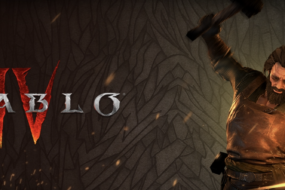| Detroit: Become Human – Three Characters, One Story Many extraordinary stories have already been told about androids, whether it be in literature, film or television. But after having worked on Kara’s short video, I knew that the story I wanted to tell was different. My first decision was to take the androids’, rather than the humans’, point of view. Instead of the wicked AI who wants to destroy good humanity, I preferred a different angle: my story would talk about humanity on the decline: selfish, dependent on technology, concerned only with comfort. Opposed to this: a new, intelligent species that we created, which discovers the world, feels emotions and asks only to live. I wrote this story with the personal conviction that it was not only a story, but a vision of the future: how will we react when machines we’ve created become more intelligent than us and show signs of consciousness? Moreover, is consciousness only a question of computing power or is it something else? Rather than a single, grand narrative, I chose to tell the story of three androids, three characters who discover their emotions and must choose their destiny. I have been working on “multi-character” storytelling for several years (since Fahrenheit in 2005, even though Nomad Soul in 1999 already allowed control of dozens of different characters). It is a complex and exciting form of writing: it allows the player to stand in the shoes of several protagonists at the same time, to tell independent stories that meet, collide, intermingle, and above all tell the central narrative in a unique way. This approach, originating in literature (Geoffrey Chaucer’s The Canterbury Tales, for example), popularized nowadays by many TV series, works in my opinion particularly well in an interactive experience: the player passes quickly from character to character, between different contexts and scenes, discovering the story from several points of view, enriching his experience. We pushed this idea as far as we could, having three different composers (one per character) with radically different musical styles, three different moods, three different cinematographies, so that the player has a sense of playing three different games as they move from one character to another. Through the player’s decisions and the intersecting destinies of these three characters, the player tells their own story. Every decision is important because it may impact not only the fate of one character, but also that of the other two, or even change the course of events for the wider world. The destinies of Connor, Kara and Markus will be in your hands on May 25th. It will be up to you to tell their story. Connor is a prototype, named the RK800, created by CyberLife. His initial goal is to assist human detectives in their investigations by offering them technological assistance. He is also equipped with a social module specially developed to create the “ideal partner”, capable of integrating into any team. He is also equipped with special features, such as a real-time molecular analyzer and a sophisticated simulator that can reconstruct past events. He is exceptionally intelligent, cold and determined, ready to do anything to succeed in his mission. When the first cases of androids with abnormal behavior are reported, CyberLife offers to send this prototype to assist Detroit police. Connor has already undergone field tests involving androids, but this is his first investigation. Connor is sent to join Lieutenant Hank Anderson, a grizzled, alcoholic detective who hates androids. Connor will need to make use of his “psychology” module to earn the respect of his partner and discover the truth about deviants. Markus is an android who belongs to celebrated painter Carl Manfred, an old man who has lost the use of his legs. If at first Markus was only a machine in Carl’s eyes, a paternal affection has gradually developed. Carl treats Markus as if he were human, teaches him to paint, exposes him to literature and music; develops the android’s spirit a little each day. Eventually Carl comes to think of Markus like a son, much to the dissatisfaction of Carl’s biological son, Leo. Markus’ journey will take him from caregiver in the service of an old man to leading the historic android revolution. But to lead a revolution will be much more difficult than anything Markus can imagine: he must contend with the factitious disagreements of his people, face insoluble dilemmas, moral choices and sacrifice. He must choose a path between violence and pacifism, between a closed fist and an outstretched hand. Through his choices, Markus will write the history of his people and lead them to freedom… or destruction. Kara is an AX400 domestic assistant model created by CyberLife. The AX400 is a common model, designed to take care of the housework and look after young children. They can speak 300 different languages, cook more than 9000 dishes, help children with their homework and play with them. Kara is owned by a former unemployed taxi driver, called Todd Williams, a strange and unpredictable character. He is the father of a little girl named Alice, with whom Kara is tasked with taking care of. Under harsh circumstances, they quickly learn that they are not safe with Todd. Both will run away and struggle to find a path to freedom. Becoming fugitives, they will discover a disjointed world falling apart and understand the strange feeling that unites them. They will journey from encounter to encounter, confronting violence and hatred but also the empathy of those who keep hope. David Bull – Brand Manager, SCEA blog.us.playstation.com |





